Ok, so first, let’s answer the questions, so you don’t have to look like those guys…
What is GLUTEN?
Simply put, gluten refers to the two proteins found in wheat endosperm: gliadin (a prolamin protein) and glutenin (a glutelin protein). During germination, it is the gluten that provides nourishment for the plant. It also creates the chewy texture of the baked goods so many love.
So WHAT’S THE BIG DEAL?
Gluten-free has become a buzzword as of late, and it’s one that a lot of people either stand behind and practice with veracity OR adamantly despise and poke fun at (Jimmy for example).
What I have come to discover is that most people, on BOTH sides of the spectrum, don’t really know what gluten is or why it is a big deal (if that video up there doesn’t show this for a fact, I don’t know what will). So I am going to break it down as simply as I can (see links below for some great reads with even more detail).
It began with CELIAC DISEASE:
The symptoms of Celiac Disease are a result of an immune response specific to the protein gliadin. For those with CD the symptoms can be incredibly severe – ranging from stomach issues (think immediate need to run to the bathroom or acid reflux/heartburn) to nervous system issues, anemia, and skin conditions. And these are just a few.
The reality is, though, that even folks who are not diagnosed with Celiacs and who are not allergic to the specific protein can still have reactions to the other proteins in gluten (but these folks will always test negative to CD). Also, after a lifetime of eating gluten, it might not be very clear that you do have a reaction because however you do react has become a “normal” part of your life, and the symptoms perhaps have become something “normal” as well. This was certainly the case for me. I spent the first 23 years of my life living with stomach cramping, bloating, and gas that I thought was just a product of a sensitive stomach. I came to realize after taking it out, though, that I didn’t have to live this way. When I took out gluten, the discomfort disappeared 100%, and I am never going back.
So MAYBE IT’S WORTH GIVING A SHOT:
If you are intolerant, you’ll never really know unless you TEST it out. Take it out for a month (really commit to this), add it back in (without changing anything else), and see how you feel. I am going to guess, you probably won’t feel awesome. And the reason for this is most people have some sort of intolerance to gluten. Gluten can impact every tissue of the body, and when you do add it back in, it might not show itself as gas, bloating, or any of the other typical ways irritating foods might. You might feel stuffed up, lethargic, itchy, puffy, etc.
If you need more convincing, take note that there are actually recent studies that show that gluten is connected to all kinds of diseases, such as schizophrenia, epilepsy, Type 1 diabetes, osteoporosis, dermatitis, psoriasis, Hashimoto’s hypothyroidism, and peripheral neuropathy. It’s worth a shot, if you ask me!
And HERE’S WHEN I GET ANNOYED:
It’s with the marketing schemes that have come out of all this. Somehow “gluten-free” has become synonymous with healthy, and frankly, that’s just BS.
I’ll quote Mark Sisson here because he put it very well in a recent article:
“For many people, a “gluten-free” label unfortunately bestows a cachet of health onto whatever processed food it graces. Potato chips? They’re gluten-free! Triple-chocolate brownie mud slide fudge-topped soy flour locust bean gum explosion? Gluten-free! Eat without guilt! Gluten-free bread that makes up for the lack of gluten’s texturizing power with a half cup of soybean oil? Go for it! Even foods that never contained gluten in the first place, like Cheetos, and hummus, are getting the gluten-free label to capitalize on the trend.”
Just because something is gluten-free, does not mean it is a whole food, and the goal here, if I teach you anything, is to learn to eat REAL FOOD! Stick with that mindset, and you won’t have any labels to look at anyways.
A great article to read for even more in-depth understanding can be found HERE.
Questions? Curious to know if you should cut gluten? I’m here to help. Feel free to reach out for 1-on-1 consulting and we can schedule a time to meet remotely or in person to create a plan for you to find your individual plan. Find my services HERE. Remember, you are your best expiriment and food can be the best medicine.
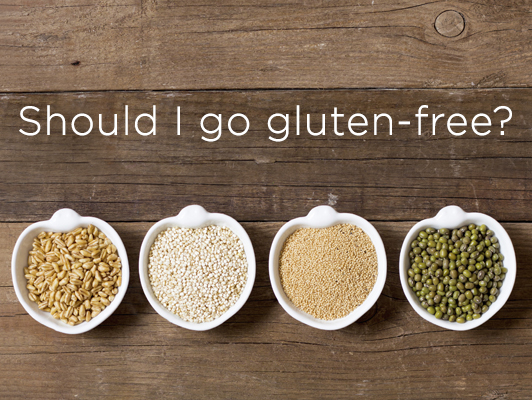
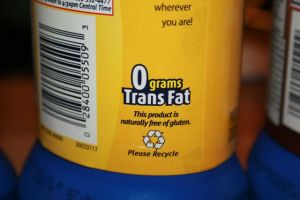

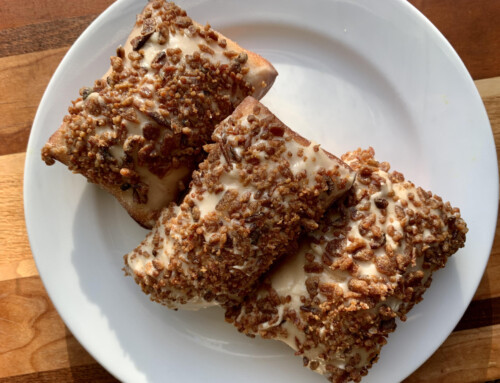
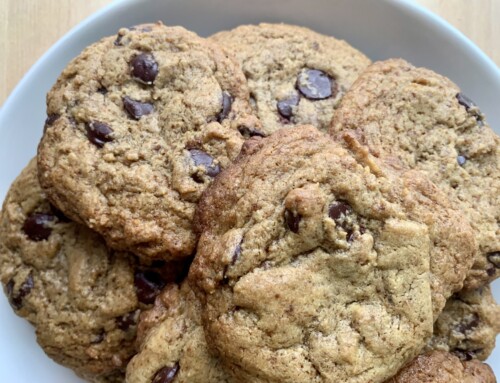
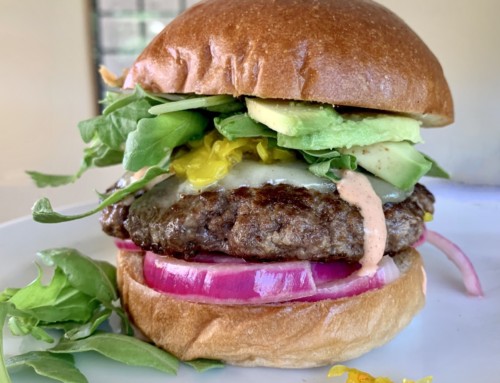
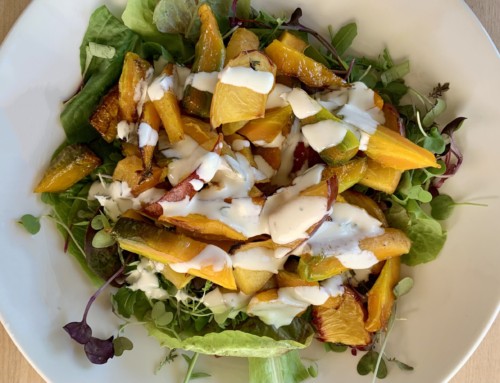
First off, I love that you refer to splurges as “treats” and not “cheats”. I feel the same way; cheat just has such a negative connotation attached to it, and while these indulgences may not be so good for the waistline, they’re good for the soul!
I’ve seen a couple of videos floating around about people who avoid gluten not knowing what it is and I find it pretty entertaining. I’ve experimented with cutting out wheat products and have noticed a huge difference in how I feel. I’m far less bloated and the red bumps I’ve had on the backs of my arms for as long as I can remember, that I could NEVER get rid of, completely went away. It’s so fascinating, yet not surprising, how the food we eat affects us!
Thanks for sharing that brownie recipe; I can’t wait to give it a try!
So happy to hear that cutting out gluten has helped you. To be honest, I have never had a client who has not seen some benefit from cutting it out. It’s always my first advice and then I go from there. Enjoy the brownies!
Great post.
Thank you! So glad you enjoyed it. Just trying to demystify the whole gluten-free concept for folks.
[…] whole organic movement. Is it something to buy into, or is it just another marketing catchword like “gluten-free” that doesn’t necessarily hold any merit in terms of nutrient density? Well, my goal with this […]
[…] what is gluten and why all the gluten-free hype? | lift.laugh … – So WHAT’S THE BIG DEAL? Gluten-free has become a buzzword as of late, and it’s one that a lot of people either stand behind and practice with veracity OR adamantly despise and poke fun at (Jimmy for example). […]